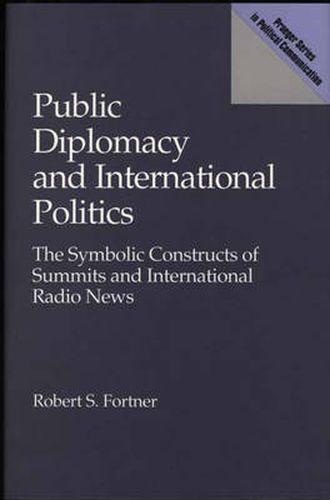Readings Newsletter
Become a Readings Member to make your shopping experience even easier.
Sign in or sign up for free!
You’re not far away from qualifying for FREE standard shipping within Australia
You’ve qualified for FREE standard shipping within Australia
The cart is loading…






This book examines international radio news coverage of the four superpower summit meetings between Soviets and Americans from 1987 to 1990. It concentrates on the symbolic constructs used by radio services to report about the summits, including their treatments of the two superpowers, their leaders, and their perspectives as recorded in interviews, press conferences and releases, joint communiques, and briefings. The study assesses the degree of success enjoyed by each of the superpowers in directing the nature of international news coverage, particularly the public relations battle between Mikhail Gorbachev and Ronald Reagan. It also weighs the viability of specific talking points written to direct U.S. summit statements by the National Security Council, and the degree to which news coverage was tainted by propaganda. Finally, it is able to suggest the nature of each service’s contribution to diversity in international news flow, and to the ongoing debate about the equality of the international communication and information order.
$9.00 standard shipping within Australia
FREE standard shipping within Australia for orders over $100.00
Express & International shipping calculated at checkout
This book examines international radio news coverage of the four superpower summit meetings between Soviets and Americans from 1987 to 1990. It concentrates on the symbolic constructs used by radio services to report about the summits, including their treatments of the two superpowers, their leaders, and their perspectives as recorded in interviews, press conferences and releases, joint communiques, and briefings. The study assesses the degree of success enjoyed by each of the superpowers in directing the nature of international news coverage, particularly the public relations battle between Mikhail Gorbachev and Ronald Reagan. It also weighs the viability of specific talking points written to direct U.S. summit statements by the National Security Council, and the degree to which news coverage was tainted by propaganda. Finally, it is able to suggest the nature of each service’s contribution to diversity in international news flow, and to the ongoing debate about the equality of the international communication and information order.